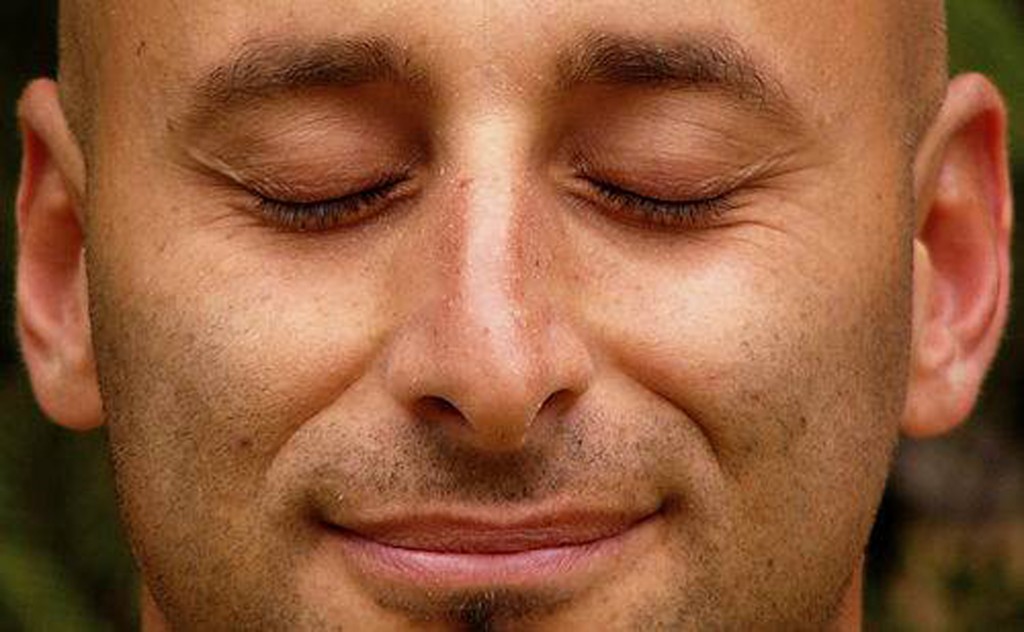
Meditation Questions: What is the Main Goal of Meditation?
I just received an excellent meditation question from John Q. It opens a large can of worms, inside of which is at least one elephant in the room, so what with all of these elephants and worms and mixed metaphors, be ready for a wild ride.
Here is the key point of John’s question:
“I want to know what is the Main goal of meditation. I always thought that it was to clear your mind, and to be in the “Now” and not allow any thoughts in. And then I read a very popular book on meditation titled :”How to Meditate” by Pema Chodron.
I quote: ‘steadfastness means that when you meditate and you allow yourself to experience what’s happening in that moment-which could be your mind going a hundred miles an hour,your body twitching,your head pounding,your heart full of fear,whatever comes up-you stay with that experience. That’s it.’
Now that really contradicts what I assume to be the objective of a meditation session”
No wonder you’re confused, John!
I’m going to address this in two parts. First I’ll attempt to disentangle these apparently contradictory ideas and second, I will tell you what I think meditation is actually all about.
Is the goal of meditation to clear the mind of thoughts?
“Be careful where you aim. You might get there.” – Chet Atkins
The idea that meditation is intended to clear the mind of thought is technically correct, but this is only part of the story and this has created a lot of confusion.
The first thing to understand is that while the GOAL of meditation may be a state free of mental disturbance, the best METHOD to get there is NOT by trying to think of nothing.
I’ve lost count of the number of people who tell me that they can’t meditate because they can’t stop thinking during meditation. I tell them that it is perfectly normal to have thoughts during meditation, and that it is an indication that they are alive and human, which is not a bad thing. After all, they hardly need ANOTHER thing to worry pointlessly about. Tragically, some people give up trying to meditate because of this misleading idea that they have to stop thinking.
Pema Chodron, quoted in John’s question above, seems to be trying to reassure her readers similarly. She is emphasizing the importance of shifting your perspective and identifying with the witnessing aspect of consciousness rather than the thoughts themselves.
In meditation we learn to identify with our core of self awareness (the Atman), rather than with our thoughts. If you do this successfully, something very interesting might happen. I’ve seldom heard anyone describe their revelation of Oneness so beautifully as comic actor, Jim Carrey:
So what to think about in meditation?
The mind is designed to think, so rather than just letting it run on aimlessly along all kinds of crazy trails, mostly worrying about stuff you have no control over, in meditation you train yourself to focus on a single idea, instead of many.
A very effective way to do this is through the use of a Mantra. A mantra is a word or phrase, usually in Sanskrit, which is repeated mentally, and gives the mind a point of focus. It is a simple but very powerful technique for training the mind that has been used in meditation for millennia.
What is the true goal of meditation?
The ultimate goal of meditation is more than just ‘mindfulness’ or ‘being in the now’. Enlightenment, Ananda, Self-Realization, Oneness with God, a state of Grace, all these attempts to name or describe the goal of meditation fall far short, inevitably, because the goal of meditation is to transcend the mind and experience directly the Oneness of the Universe – something beyond thought or imagination, and certainly beyond words.
“The Tao that can be spoken is not the eternal Tao The name that can be named is not the eternal name.”
This is often termed, Self-Realization. Here the capitalized ‘Self’ signifies that we are talking about something other than the regular everyday ‘self’ as we experience it. It refers to what is variously called the Higher Self, the Supreme Consciousness, God, Allah etc. What Albert Einstein referred to as ‘the Supreme Intelligence’.
In other words, the goal of meditation is to realize that you are God.
Now I know that sounds kind of hard. Or perhaps even unlikely or impossible, or perhaps you are not sure whether or not God exists. Nevertheless, the yogis who first developed meditation in ancient India more than 7000 years ago (to get a little perspective on this, Buddha lived about 2500 years ago) were very clear that this is the ultimate purpose of spiritual meditation. They called this Dhyana, which is one of the eight limbs of Astaunga Yoga.
So what should we focus on in meditation? If you are trying to achieve anything, most people will advise you to focus on your goal. And the goal of meditation is, as stated above, bliss or infinite love – the experience of Cosmic Consciousness or Oneness.
This is why the meaning of the Mantra is very important. It should embody the goal – the idea of oneness and infinite peace and love. If you think about that for 10,000 hours or so, you’ll begin to feel really different, believe me!

Pema Chodron is a woman, but you referred to her as “he”!
Thanks, Mary, for the correction. I just changed it.
If our goal in meditation is to realize we are God then we will always fall short. My God lives inside me but that does not make me God. I have a close relationship with Him but no one will ever be Him. When you get to the stage where you think you are God then Satan has control. Lets face it Satan is ruling this world now but only for while. Joy
It depends on what definition you give to God. If man is made in the image of God, then in principle it should be possible to realize Him. In my view God is the ultimate source. course and goal of all of life. God is beyond all the relative. He is the transcendental source. But the upanishads say: Thou art that. Which means everyone in his ultimate core is God. The secret of life is to realize that ultimate. Meditation practice is the training of going beyond relative life, what remains if the practice is succesful is exactly that which we call God, namely pure being, total unboundedness, beyond time and space etc. So realizing God means integrating the 2 extremes in life, 100% absolute existence together with 100% relativity in daily life. This is called Cosmic Consciousness.
Joy
On John-10: we read Jesús answered them “Is it not written in your Law, I have said you are gods? It is the devils work to make you think you are not God.
It is this main idea the one we must comprehen , aknowledge and live it, it is for our own salvation. It requires you to stan on your Highest Priciples and Values and to take responsibility for your whole life. This is not Satan”s idea.
Gabriela
We are created in his image and likeness. We are indeed gods, but of course there is no god like God. Someone who may not know him like we do may easily be fooled into thinking the collective conciousness IS God (when ppl say “we are God” or “we are all God”) bc they have yet to understand and/or experience how much bigger and more infinate he is than that! My theory is that we (even collectively) are a only a piece of God, in the same way a son is only a piece of his father. A descendent (a god) nonetheless, but not a twin or an exact copy.
Enlightenment is like the moon reflected on the water.
The moon does not get wet, nor is the water broken.
Although its light is wide and great,
The moon is reflected even in a puddle an inch wide.
The whole moon and the entire sky
Are reflected in one dewdrop on the grass.
Dogen
Or to put it another way, we are like holograms. Let’s quote Rumi:
“You are not a drop in the ocean. You are the entire ocean in a drop.”
According to sutra 2 of the yoga sutras of Patanjali, the purpose of meditation (or Yoga) is the settling of the mind into silence. So meditation is a tool to train the mind to experience finer levels of thinking untill the finest level is reached and eventually transcended. This is the experience Jim Carey talks about. You cannot force it, it just comes to you, when you have had the right training. This means that the right procedure is of most importance. There are many meditation techniques on the market. Which one is the best in the market is the biggest question. I hope that one day scientific research will give the answer to that question. So that meditation is not bound to a guru or a beleif system.
Thanks for your thoughtful input Robert. While I would not presume to suggest that Patanjali’s definition of Yoga is wrong, I prefer Shiva’s much earlier definition of Yoga as the Union of the Atman and Paramatman, the individual consciousness and the Cosmic Consciousness. The reason I prefer this is approach is that it establishes the ground for a sense of relationship with the divine, and hence becomes the basis of Bhakti Yoga – the yoga of love and devotion.
In total silence, which is the essence of Shiva, everything is united. Indivual consciousness and Cosmic consiousness are one there. Its like the ocean without waves. A relationship with the devine can only take place after the individual consciousness has had enough experience of the cosmic level. The decision (or acceptence) on that level is by the cosmic consciousness (God). So in my view Bhakti Yoga can only start when enough of cosmic consciousness (CC) is established. Practice of Bhakti Yoga before CC is a waste of time, because the individual consciousness is not ready for the unbounded energy. It is like a drop of the ocean trying to image he is the ocean. If people do Bhakti Yoga before CC, it will develop into mood making, which can cause stress and frustration.
i Believe Dada has beautifully conveyed the essence of the GOAL of meditation in his response. And he is right. Lord Buddha, Aurobindo, Shivananda, Ramakrishna Paramahansa, Yogananda Paramahansa, and other great masters have provided similar responses when dealing with the subject of the goal of spiritual practice.
For me, meditation and all related spiritual practices, teach a person to purify and refine one’s spiritual toolkit in order that one could perceive/experience a wider range of more subtle waves emanating from the Universe. Many people call such subtle waves bliss, intense joy, intuitional experiences, psychic phenomena, etc. Part of our toolkit includes glands, nerve centres, cells, and different parts of the mind. The more refined our toolkit becomes, the more waves we can perceive – subtle, subtler, even more subtle. Finally, with further refinement, different parts of our mind become super refined, making it a suitable candidate for merging with the blissful Cosmic Mind.
Swamiji:
Belated greetings for the year of 2015.
I went over moe than once your article on the goal of meditation, aimed at clearing the doubts of many who have taken to meditation.
Why should there be such anxiety about the goal? If you’re consciously aiming for enlightenment — which most are — then frustration is inevitable. Can anyone put in words what enlightenment is?
Isn’t the journey more important than the destination?
God, self-purification …all these may sound fine but they’re false trails.
A good traveler has no fixed plans, and is not intent on arriving.–Lao Tzu
Dear Gopinath,
Thanks for your comment.
I am not suggesting that people be anxious about the goal. But in my life I have experienced a lot of truth in the saying, “if you don’t know where you are going, that is where you will end up”.
I suspect that Lao Tzu was warning people against ego-centric striving for an imagined spiritual goal. This is not the same thing as having firm determination to follow the path of Dharma. You can find a similar concept in the Bhagavad Gita; acting without attachment to the results. We still have to act, we still have to move, and if we are bound to move it makes sense to choose a path that leads towards the light.
Is the journey more important than the destination? The journey is what enables us to realize that the destination was with us all along. Both are important because they are inseparable.
I’m not an expert, but I know the key for me was to use my mind like a bug zapepr. The bugs are bad thoughts things you keep letting play over again in your head. The way to zap them is just turn your mind away from them as soon as you notice that you’re thinking them. See, your mind treats every thought as fact and your body reacts as if it were really happening, so you need to stop the bad thoughts and replace them with good ones. I’m feeling sick becomes I feel great!” Even if you feel the affirmation is a lie at first, if you persist in telling yourself you feel good and you don’t think contradictory thoughts, you’re mind and body will respond as if it were true and soon enough, it will be.It’s a matter of mental discipline. Your thoughts produce emotions and emotions generate physical responses.Of course, you may not have any thoughts you can identify that are generating your anxiety, or you are just in such a state of physical reaction that nothing helps. If these are the case, you might have some belief about the world that you learned long ago and it produces fear for you. You may need someone’s help to find out what that belief is and what it is you fear. You may have to make the thought conscious before it can be zapped once and for all.I hope this helps. There are alot of books out there. Most of the ones I have read are some variation on the concept of mental discipline and a bunch even go as far as saying you create or attract the reality you imagine. Whether you buy that or not, I know controlling your thoughts can help. Anxiety is horrible, but it can usually be overcome. Don’t hesitate to seek professional help. Good luck!!
>Nevertheless, the yogis who first developed meditation in ancient India more than 7000 years ago
There is absolutely zero proof of that it was “invented” just 7000 years ago, and ofcourse by them. Meditation in many forms is present in all cultures, also in pre christian and to some extent christian religions in Europe.
Yes, there are forms of meditation in many cultures, including Christian and pre-Christian religions in Europe. I am not questioning that. What I am referring to is the kind of spiritual meditation techniques using mantras, chakras and kundalini. These techniques evolved amongst the Dravidian Shamans between 10,000 and 7,000 years ago. They were synthesized into a system by Sadashiva, the worlds first Mahayogi or Great Yogi, who lived 7000 years ago. These techniques have since spread widely, morphing into Taoism, inspiring the Buddha through his early teachings, merging with some forms of Buddhism later, and there is even archeological evidence of Shiva’s influence in ancient pre-Christian Europe. There is definitely evidence supporting this, though it is hard to make a definitive case for anything that occurred that long ago. If you want to understand this more deeply I recommend the excellent book by Ramesh Bjonnes: Tantra: The Yoga of Love and Awakening.